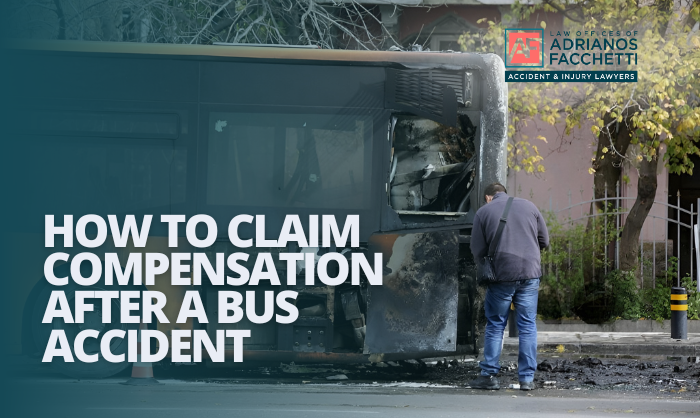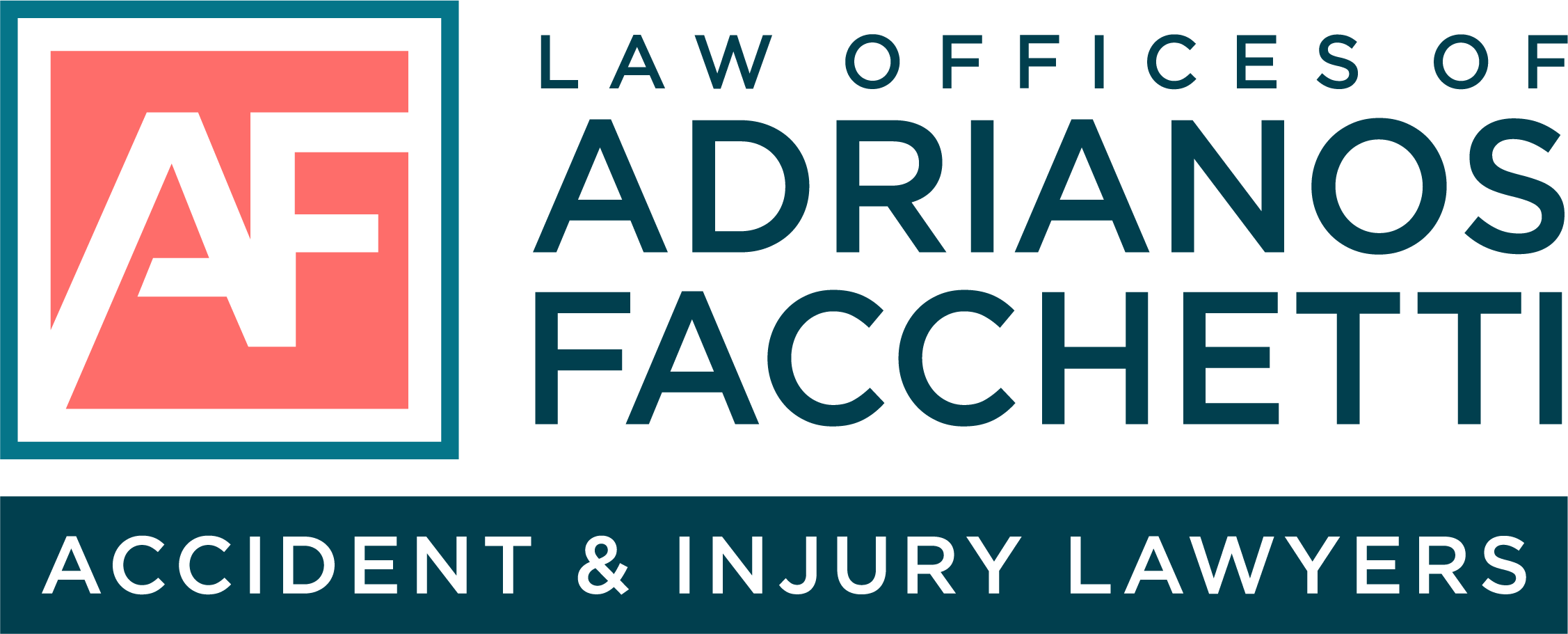You’re dealing with injuries, medical appointments, and paperwork all because of a bus accident that wasn’t your fault. Now you’re trying to figure out how to actually get compensated for everything you’re going through. Where do you even start?

If your accident happened in the Los Angeles area, especially if it involved a public transit agency like LA Metro, the steps to file a bus accident claim can be confusing and the clock is already ticking. Between strict deadlines (like the six-month window to file against a government entity) and the legal requirements to prove negligence, this isn’t something you want to handle alone. That’s why hiring a bus accident attorney and getting clear on your rights is so important. Call (626) 793-8607 if you’re ready to take the next step.
What Compensation Can You Claim After a Bus Accident?
If you’ve been hurt in a bus crash, you’re probably wondering what kind of bus accident compensation claim you can file and what that claim might actually cover. You’re not just dealing with the accident itself; you’re facing medical bills, missed work, and the emotional toll it’s taken on you and your family. Knowing the types of injury compensation available can help you plan your next steps and understand what you're entitled to.
Here’s a breakdown of what you may be able to claim:
- Economic damages: These cover the direct costs medical expenses, treatment, lost income, rehab, and even the cost of getting to your appointments if you’re unable to drive.
- Non-economic damages: These relate to what you’ve gone through emotionally. Pain and suffering, emotional distress, anxiety, and loss of enjoyment in everyday life are all factors.
- Punitive damages: In rare situations where the bus company or driver showed extreme negligence, these may apply. They’re meant to punish the wrongdoer not just compensate you.
The severity of injuries plays a major role in how much you could receive. The more documentation you have like medical records and treatment estimates the stronger your bus injury compensation case will be.
Steps to Take Immediately After a Bus Accident
The hours and days right after a bus accident can feel confusing. You’re hurt, unsure who’s at fault, and maybe thinking, “What am I supposed to do now?” Taking the right actions early on can protect your health and your rights and make your bus accident claim much stronger down the road.
Here are the most important steps you should take:
- Get medical attention right away even if you don’t feel badly injured. Some injuries don’t show up right away, and this helps document your condition from the start.
- Report the accident to the police and the bus company or transit agency. You’ll want an official police report on record as part of your evidence.
- Document the scene if you’re able. That means taking photos or videos of the accident scene, visible injuries, the bus number, and anything else that seems relevant.
- Get eyewitness statements. If anyone nearby saw what happened, ask for their contact information in case their version of events supports your claim.
- Keep all records related to your injuries, costs, and time missed from work. These will be vital later.
- Avoid talking to insurance companies until you’ve spoken with a lawyer. What you say early on could be used to minimize your claim.
Following these steps gives you the best chance to build a clear, well-supported claim while protecting your health and legal rights.
How to File a Bus Accident Claim (Especially Against Government Entities)
Filing a bus accident claim isn’t the same in every situation especially if your crash involved a city or county transit agency. If you were hurt in the Los Angeles area and the bus was part of a public system like LA Metro, the government claims process comes with strict rules and shorter deadlines.
Here’s what you need to know:
- Private vs public transit: Suing a private bus company works more like a standard personal injury case. But for public buses, you’ll need to follow a specific legal path that’s completely different and less forgiving if you miss a step.
- Filing a Notice of Claim: This is often required within six months of the accident if a government-run bus was involved. Missing this window can mean you lose your chance to file altogether.
- Collect and organize evidence: This includes your medical records, the police report, and any witness statements that support your version of events.
- Be precise with deadlines and documents: When dealing with the government, filing late or submitting an incomplete claim can end your case before it starts.
Make sure to include copies of medical diagnoses and treatment estimates when filing. These help demonstrate the real impact of the accident and strengthen your request for economic damages.
Common Causes of Bus Accidents
When you’re involved in a bus crash, it’s natural to wonder how it even happened especially if you weren’t the one behind the wheel. Understanding the most common causes can give you insight into how your claim might be handled and where fault may lie.
Here are some of the top reasons these crashes occur:
- Driver fatigue or distraction: Many accidents are caused by bus driver negligence, like texting behind the wheel or driving while tired.
- Mechanical failure or poor maintenance: If brakes fail or tires blow out, it could point to a lack of upkeep by the company or transit authority.
- Reckless driving by third parties: Not every vehicle crash is the bus driver’s fault. Other drivers may cut off a bus or run a red light.
- Road conditions or poor traffic control: Bad signage, road construction, or missing traffic signals can all lead to traffic law violations without warning.
- Overloaded or improperly maintained buses: Whether it’s a school bus accident or a city transit line, too much weight or faulty parts can quickly lead to disaster.
Knowing what caused the crash helps your lawyer investigate who’s at fault and it could strengthen your case.
Who Can Be Held Liable in a Bus Accident?
Liability in a bus accident isn’t always clear-cut. There could be more than one person or organization responsible for what happened. If you're pursuing a claim, it's important to identify who can legally be held accountable.
Depending on the details, any of the following may be responsible:
- The bus driver: Especially in cases of distracted driving, speeding, or ignoring traffic laws.
- The bus company or public transit agency: A bus company or metropolitan transit authority can be held liable if they failed to hire properly trained drivers or skipped routine maintenance.
- Maintenance contractors: Sometimes, a third-party repair service is to blame for missed inspections or sloppy repairs.
- Another driver (third-party negligence): If another vehicle caused the crash, that driver’s insurance may be part of your claim.
- Bus manufacturers (in rare defect cases): In rare instances, a faulty part or design flaw could make the bus manufacturer liable.
In some accidents, more than one party might share the blame. Understanding these liability laws helps build a clearer case from the beginning.
Challenges in Bus Accident Cases
Filing a bus accident claim isn’t always simple. These cases often involve more legal steps and more people than a typical car accident especially when public agencies are involved. That’s why knowing the roadblocks ahead of time matters.
Here are some of the common challenges:
- Public vs private insurance complications: Suing a public transportation agency or school district involves different insurance systems and extra paperwork.
- Multiple liable parties: You might be dealing with a bus driver, another vehicle, a company, and a government agency all at once.
- Gathering strong evidence to prove negligence: Getting expert testimony, full medical records, and traffic camera footage takes time and legal know-how.
- Dealing with government filing restrictions and immunity claims: These rules come with strict deadlines and procedural hurdles. Missing just one deadline can put your entire case at risk.
Many of these obstacles tie back to detailed legal procedures and comparative negligence rules. Having the right legal support from day one helps you avoid mistakes that can cost you your compensation.
Do You Need a Lawyer to File a Bus Accident Claim?
It’s possible to file a bus accident claim on your own but having a lawyer on your side can make a big difference, especially when you’re dealing with medical bills, missed work, and pushback from insurance companies. Hiring a lawyer gives you an experienced guide who knows the ins and outs of bus accident law and what it takes to get real results.
A good bus accident law firm can help with things like:
- Sorting out who’s responsible when multiple parties are involved or fault is disputed.
- Handling conversations with insurance companies, so you don’t have to worry about saying the wrong thing.
- Making sure your compensation claim includes everything you're entitled to not just what the insurance offers upfront.
- Representing your case in court if it comes to that, though many cases settle beforehand.
Most bus accident lawyers offer free consultations and only get paid if you win. It’s a risk-free way to get real legal support and avoid being shortchanged.
Understanding the Statute of Limitations and Filing Deadlines
There’s a legal clock ticking on every bus accident claim, and missing a deadline can mean you lose the right to compensation completely. That’s why it’s important to understand the statute of limitations in your state and how it applies, especially if a government entity like LA Metro is involved.
Here’s the breakdown:
- In California, you generally have two years from the date of the accident to file a personal injury lawsuit.
- If you're filing against a government agency, the deadline is much shorter just six months to submit a formal notice of claim.
- If these filing deadlines pass and no claim is made, you may no longer have legal options.
Because these rules change depending on your location, speaking with a personal injury attorney early on is the best way to protect your case. They’ll make sure you don’t miss anything critical.
How Long Does It Take to Settle a Bus Accident Claim?
You’re probably wondering how long it’ll take to actually receive your bus accident settlement. The answer depends on a few key things, like how serious your injuries are, how clearly fault can be proven, and how cooperative the insurance company is.
Here’s what usually affects the timeline:
- Serious injuries may require more treatment before a full claim can be calculated.
- Disputes over who’s at fault can slow things down.
- If insurance adjusters drag their feet or offer low settlements, your lawyer may need to push back harder or prepare for court.
In general, some claims wrap up in 3–6 months, while others can take over a year, especially if there’s a trial. Having legal experts involved can help move things along more efficiently during settlement negotiations, while also making sure nothing gets left on the table.
Frequently Asked Questions About Bus Accident Claims
It’s normal to have questions after being in a bus accident, especially if you’re trying to figure out what happens next or whether you have a valid case. This section clears up some of the most common concerns people have when starting a bus accident claim or bus passenger accident claim.
What should I do first after a bus crash?
Get medical care right away, then report the accident to authorities or the transit agency. If you’re able, collect any contact information or photos at the scene. The more details you can save, the stronger your bus accident injury claim may be later on.
Will my medical bills be covered?
If someone else was at fault whether it’s the bus driver, a transit agency, or another vehicle you may be able to get compensation for your medical costs through a bus accident compensation claim. That includes emergency care, follow-ups, physical therapy, and more, depending on the situation and the insurance policies involved.
What if I was partially at fault?
Even if you share some of the blame, you could still recover part of your damages. California uses comparative fault rules, so your compensation may be reduced based on your percentage of responsibility. This is why it’s important to speak with someone who understands personal injury claims and how liability works.
Can I sue a public transportation agency?
Yes, but the process is different from suing a private company. You’ll need to follow specific legal procedures and file within a much shorter deadline often just six months from the date of the accident. Claims against public agencies like LA Metro have their own rules, so acting quickly matters.
Whether you were a passenger, a pedestrian, or were hit by a bus, these answers should help you get a better sense of what to expect. And if you still have questions, talking to a lawyer can help clarify your options.
Talk to a Bus Accident Lawyer for Help With Your Claim
If you're dealing with the impact of a bus accident whether it's injuries, missed work, or insurance stress it helps to speak with someone who knows how to handle these cases. A bus accident lawyer can walk you through your options, explain how the process works, and help protect your rights from the start.
Getting early legal advice means you can avoid costly mistakes and file everything correctly. Many law firms offer free consultations, so you can talk through your case at no cost. And with no win, no fee agreements, you only pay if you win.
It’s especially helpful to work with a bus accident law firm that has experience with California laws and LA-area transit accidents, including claims involving public buses or school districts. They’ll understand local filing rules and the specific challenges that come with these types of cases.
If you're ready to get support and take the next step in your case, call (626) 793-8607 to speak with a personal injury attorney who knows how to navigate complex legal procedures and provide the legal support you need.











